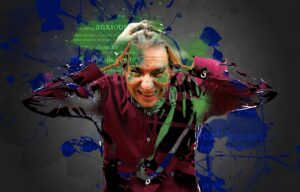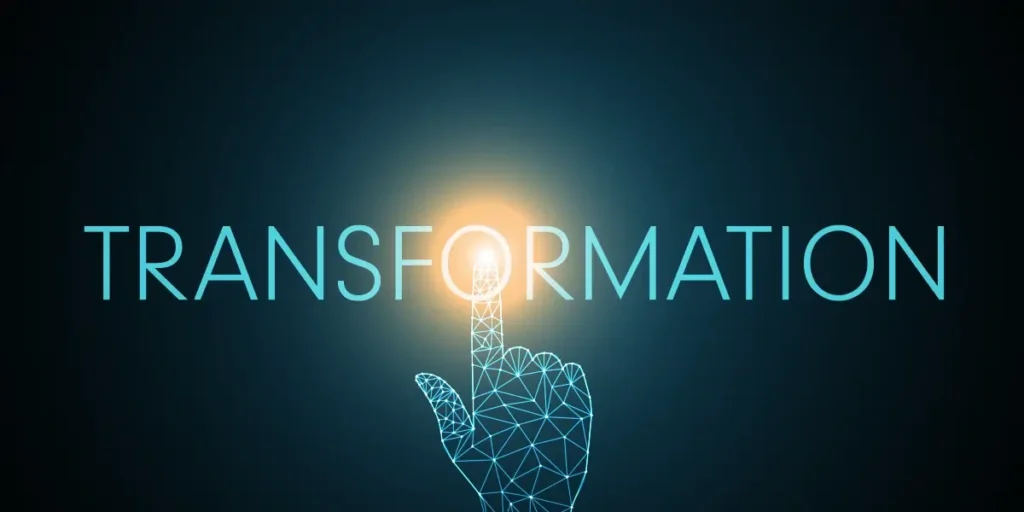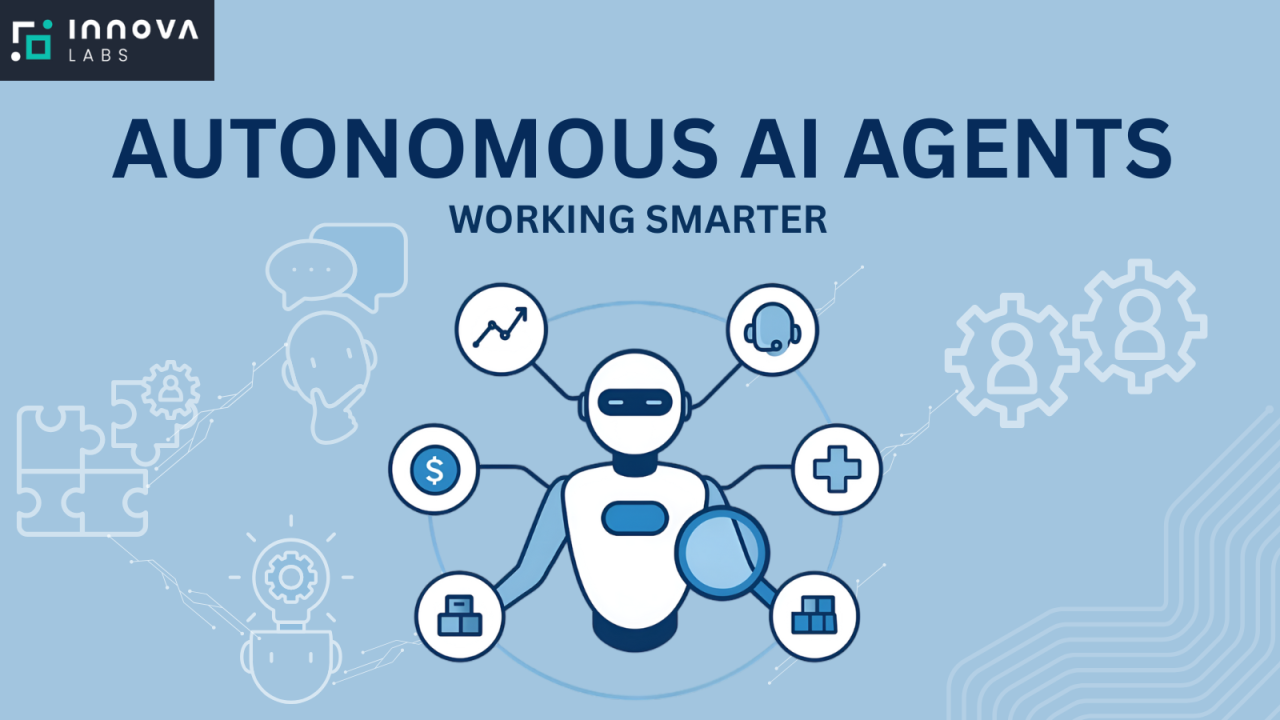Introduction: When the Therapist Is an Algorithm
You can still imagine yourself having an app and you write your emotions and you get virtual therapy in real time what you have written in the app not a human but an AI. It hears, asks questions, listens and even throws some exercise in place to relieve the anxiety or cope with depression. But what is the biggest question: can you trust AI with your mental state?
By 2025, AI is no longer dealing with emails and code writing. It is moving into something human — at the human level of mental well-being. Artificial intelligence is transforming the way individuals find support through AI chatbots to address anxiety to virtual therapy partners. But is it a revolution… or a short cut?
What is the promise, what are the traps and what is the reality about AI in mental health? Let us think.
What Is AI in Mental Health?
Artificial intelligence in mental wellness is the application of machine learning, natural language processing (NLP) and predictive algorithms to foster mental health, treatment, diagnosis and emotional support.
Such systems are able to:
Take mood tests
Present rehabilitation exercises
Identify signs of depression or suicidal thoughts at an early stage
Offer discussions items
Book an appointment with the therapist
Remind people to meditate, write journals or breathe
There are already some AI tools (standalone such as apps), and some help the therapists. When the traditional support is unavailable, many work in real time 24/7.
Popular AI Tools Used in Mental Health (2025)
| Tool | Function |
|---|---|
| Woebot | AI chatbot using CBT principles |
| Wysa | Emotional support through structured dialogue |
| Replika | AI companion that talks like a friend |
| Youper | AI-powered mood journal + self-guided therapy |
| GPT-based Agents | Personalized mental health journaling + advice |
| MindDoc AI | Identifies patterns and tracks mental state |
These apps can talk, respond, and even analyze tone and typing speed to detect emotional shifts.
Why People Are Turning to AI for Mental Health
Mental health has become an in-demand care, and it was rapidly escalating after the pandemic. However, there are not enough therapists, and the reports show long waitlists. In comes AI, which is both fast, scaleable and never sleeps.
This is the reason why AI is attractive:
Availability: With no reserved meetings
Affordability: cheap or free as compared to therapy
Anonymity: the lack of fear to be judged or stigmatized
Scalability: Well able to serve millions simultaneously
Data Tracking: Will be able to track the mood trend
Real-World Use Cases
1. College Student with Anxiety
A college student takes Wysa every night to have a conversation about his anxious thoughts before bed. It mentions breathing exercises, and offers positive affirmations to the bot.
2. Therapist Using AI Co-Pilot
A GPT-4 assistant helps a licensed therapist to summarize and point out intervention strategies on the basis of repetitive tendencies indicated by notes on the patient.
3. Employee Wellness Programs
The companies also use AI wellness bots on Slack or Teams. Employees are able to take time-ins and breaks, monitor stress.
4. Veterans’ PTSD Support
Slack or Teams also provide the companies with AI wellness bots. The workers can get time-ins and rest, experience stress.
5. Rural Community Outreach
In mentally under-served areas, SMS-based triage and advice tools powered by AI give mental health support.
Can AI Replace a Human Therapist?
The one line answer: No. However, it can supplement the treatment.
AI works well in listening, guiding and even in picking up patterns that a person would not notice. However, therapy includes empathy, body language, cultural knowledge, and trust-building, which are not developed in AI yet.
the AI itself does not really understand emotions. It shows data-driven responses, which may be very helpful, but not human in their entirety.
That is why AI should just be a tool to help you rather than an alternative.
Ethical Concerns and Limitations
As powerful as AI is, there are risks that must be addressed.
🧠 1. During a lack of real empathy
AI is able to simulate empathy but it does not feel. This may occasionally cause superficial answers or lost emotion.
🔒 2. Privacy Risks
So what do you do with the information you are giving an AI therapist? Is it coded? Sold? Stored? It is in reality these are matters of concern.
⚠️ 3. False rumor and False Diagnosis
By having AI propose wrong information or being inaccurate when assessing a mental state, it may be worse than helpful.
⛔ 4. Limitations of Crisis Response
The AI agents might not know what to do in cases of suicide crisis or emergency. The intervention of a human is nonetheless important.
📉 5. Over-Reliance
Individuals can also skip treatment and use AI, which is unable to offer comprehensive care of complex problems.
Regulatory Landscape in 2025
Most governments are also developing ethics:
EU modeling: AI Act: Transparency and explainability required into health-related AI.
U.S. FDA: Has started to treat some therapeutic bots as an AI as a medical device.
India and UK: The existence of data protection laws directed to AI based health system.
The programmers have been tasked to make AI applications safe, ethical, and clinically tested.
Human-AI Therapy Hybrids: The Best of Both Worlds?
There exists a promising model as hybrid therapy where:
AI helps human therapists in monitoring emotional trends
The AI tools are applied by patients in-between sessions
Reminders, journaling and mood checks are all dealt with by agents
The specific jobs of therapists are on intense emotional work, individual care
This combination brings the scale and sensitivity.
What Do Psychologists Say?
Some mental health professionals are optimistic in a bet hedging fashion:
AI is wonderful in terms of regular mental cleaning, diary and remembrancers. However, complex trauma, suicidal thoughts and identity factors will require a human therapist.”
Dr. Anjali Menon is a Clinical Psychologist.
The problem is we should not perceive AI as a therapist, we rather should more perceive it as a bridge, to make the first step and this is what matters.
Dr. Ethan Price is a Cognitive Behavioral Specialist
The Role of LLMs Like GPT-4 in Emotional Support
Large Language Models (LLMs) such as GPT-4o are already at the level where they can:
Have intense discussions
Echo User Input
Promote emotional work
Provide a cognitive behavioral therapy (CBT-) like structures
They do not know themselves yet but they have been trained on proportions of information that allows them to approximate a conversation endorsing emotion.
And having such layers of safety such as guardrails, content filtering, and red flag triggers, they become safer than before
.
The Future of AI in Mental Health
This is what is next:
Emotionally affective AI: Able to recognize tone, micro-emotion and user history context.
Customized Therapy Bots: Bots that are tailored to your emotional requirements and mature as you go along.
Integration with Wearables: AI will monitor the heart rate, sleep, and stress using smartwatches to provide assistance before a meltdown.
Multi-Agent Systems: A team of agents, but with each of them addressing a specific problem, e.g. an anxiety agent, a meditation agent, a journaling agent, etc.
Artificial Intelligence Life Coaches: AI-based coaches to help during a career transition, guidances in loss, and parenthood.
Should You Trust AI with Your Mental Health?
Let’s break it down:
| Situation | Can You Trust AI? |
|---|---|
| Daily mood tracking | ✅ Yes |
| General anxiety or stress support | ✅ Yes (with supervision) |
| Complex trauma | ❌ No (human needed) |
| Emergency crisis | ❌ No (call a hotline) |
| Finding emotional patterns | ✅ Helpful |
| Replacing therapy | ⚠️ Risky |
AI is best used as a companion, not a cure.
Tips for Using Mental Health AI Tools Safely
- If you are unsure of what the policy is, read the privacy policy
- Apply apps that are clinically verified
- Do not depend only on AI diagnosis
- Learn how to resort to a human therapist
- Find out whether the app links with a live support line during crisis
Final Thoughts: Augmentation, Not Replacement
Artificial Intelligence is turning out to be an essential responder to mental wellness- providing assistance before individuals come to their breaking point. It is quick, sympathetic (albeit in its own manner) and never sleeps.
Yet, it is not an entirely adequate alternative to a human touch, subtlety, or profound emotional recovery.
Is it okay to use artificial intelligence against your mental health?
Yes, but wisely and ethically and as a cog in a bigger plan.
In 2025, AI is not as yet taking the role of therapists. It is giving access to people who would otherwise have never requested assistance.
That is useful in a world in which loneliness is on the increase.
That’s essential.





